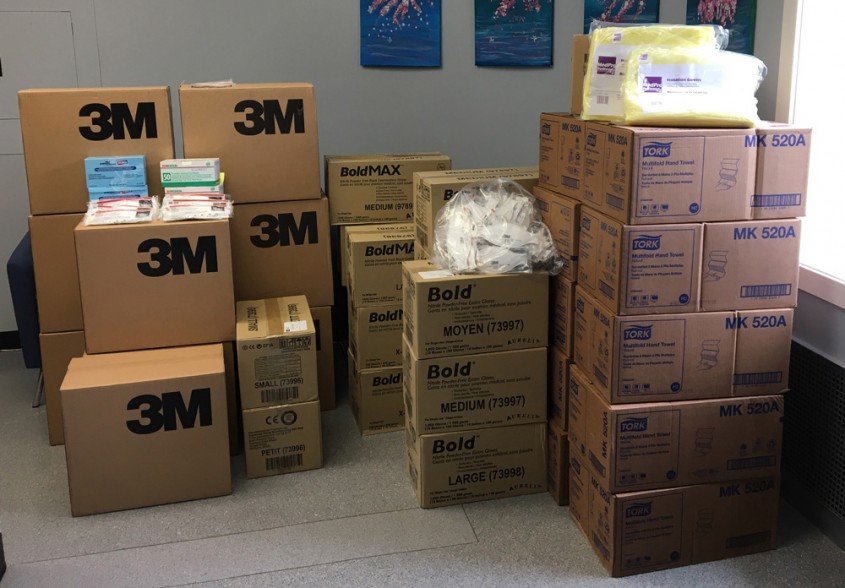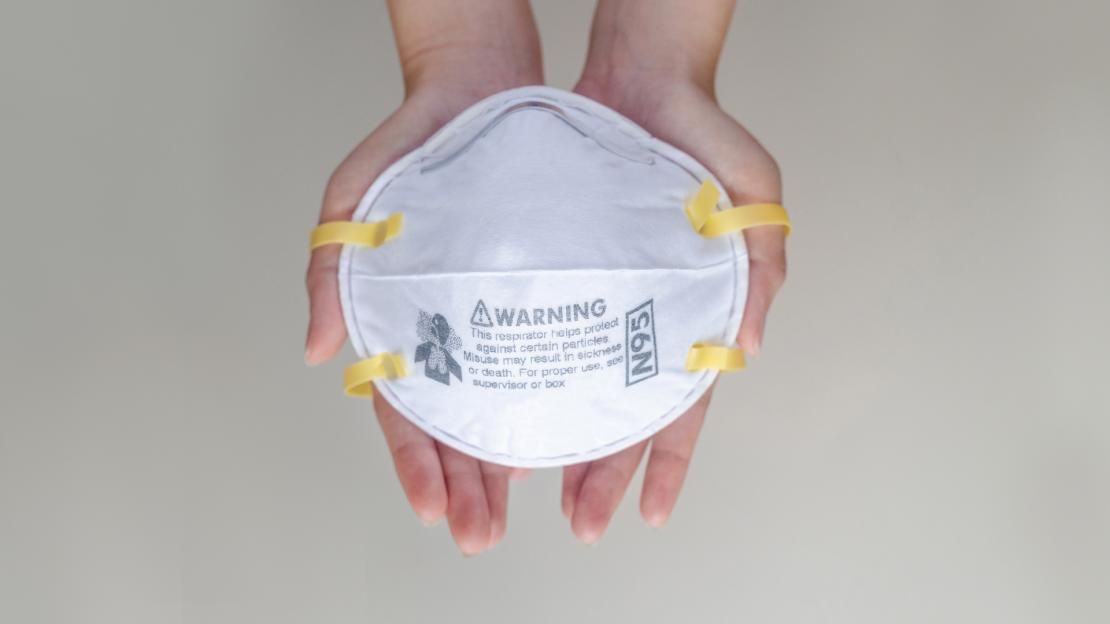U of T Scarborough has pitched in to collect tens of thousands of critical medical supplies from labs and departments across campus to help Ontario hospitals in the fight against COVID-19.
The supplies, part of a larger U of T effort to collect critical medical supplies across the three campuses, include masks, gloves, gowns and paper towels, among others.
“It’s just the beginning of the pandemic and our hospitals are having trouble keeping critical safety supplies in stock,” says Holly Yuen, U of T Scarborough’s environmental health and safety manager.
“It’s encouraging to see our community coming together during these extraordinary times to show that we care for and support our essential medical community, who are in the frontline fighting against COVID-19.”
While tens of thousands of items have already been collected, more are still needed. Yuen says they’re looking for masks (surgical and N95), nitrile gloves, gowns, hand sanitizer, hand soap, toilet paper, paper towels, disinfectant wipes and disinfectant bottles.
She says faculty and staff who have any of these supplies in unopened boxes or still in wrappings can still donate by contacting her at 416-208-5141 or email ehs@utsc.utoronto.ca.

Meanwhile, Professor Bernie Kraatz, vice-principal research, thanked UTSC researchers who have already pitched in to collect and donate a range of items. Jeffrey Miller, director of facilities management, also thanked his team for their role in collecting and donating supplies.
All of the supplies will be allocated to hospital partners in the Toronto Academic Health Science Network. The supplies are being distributed according to an ethical framework developed by U of T’s Joint Centre for Bioethics, which prioritizes health-care providers who face the highest risk of exposure.
